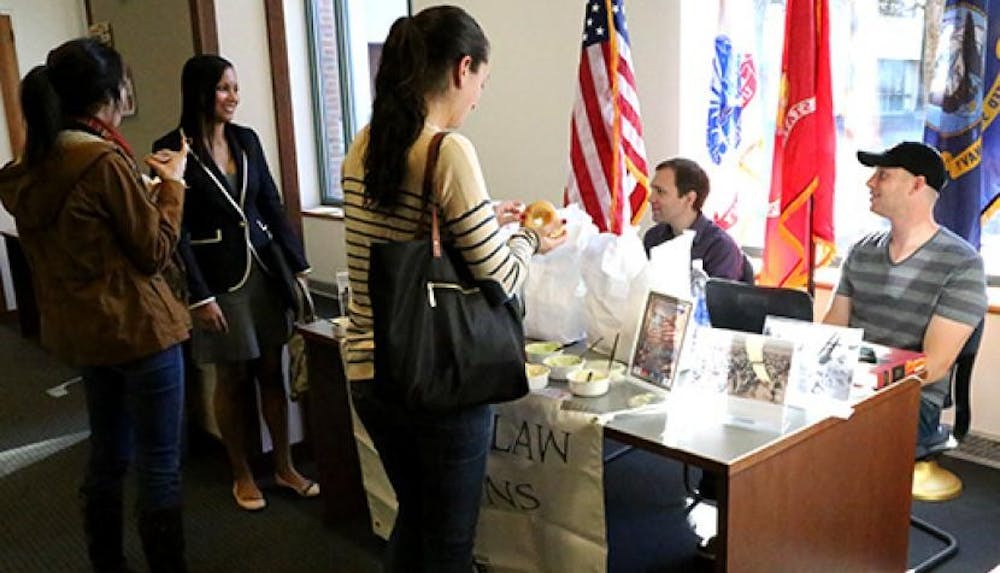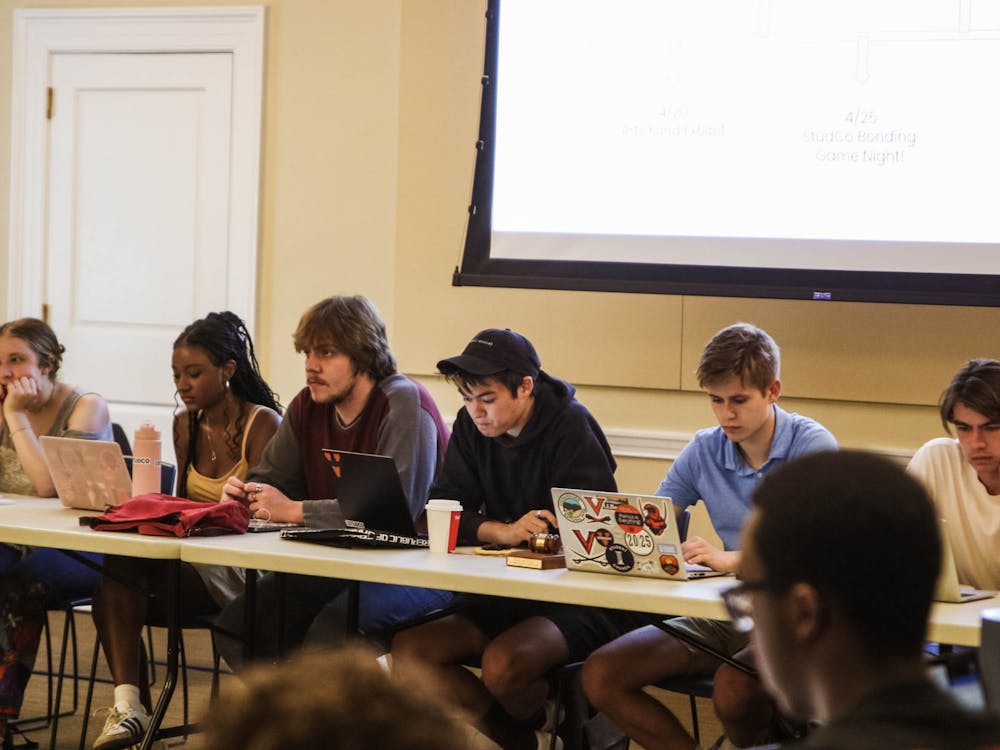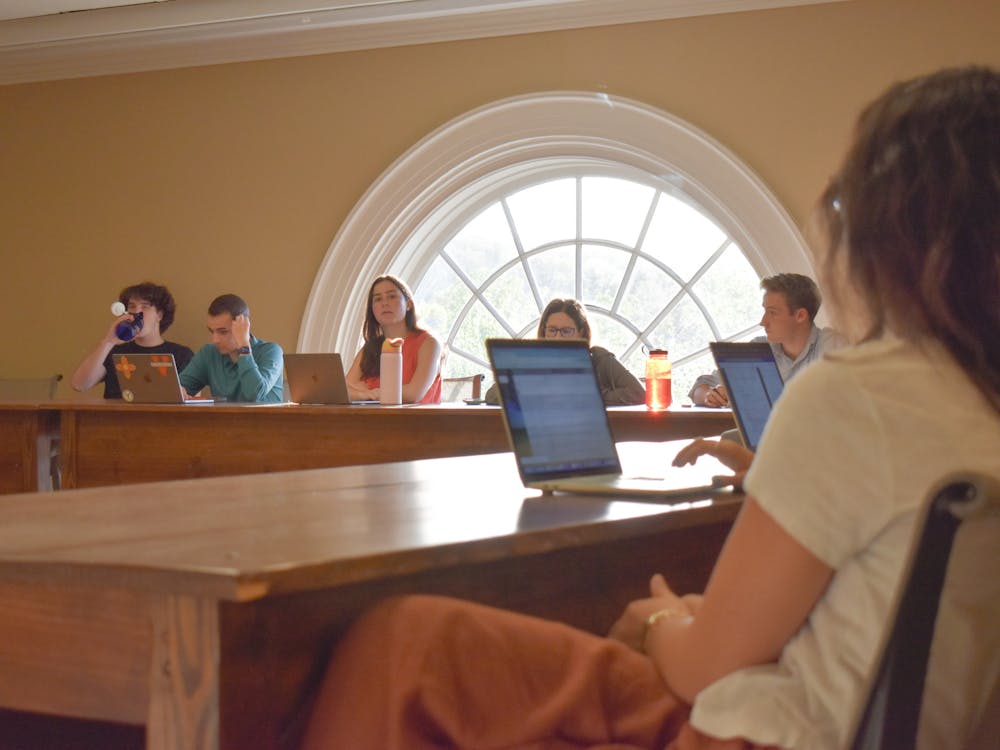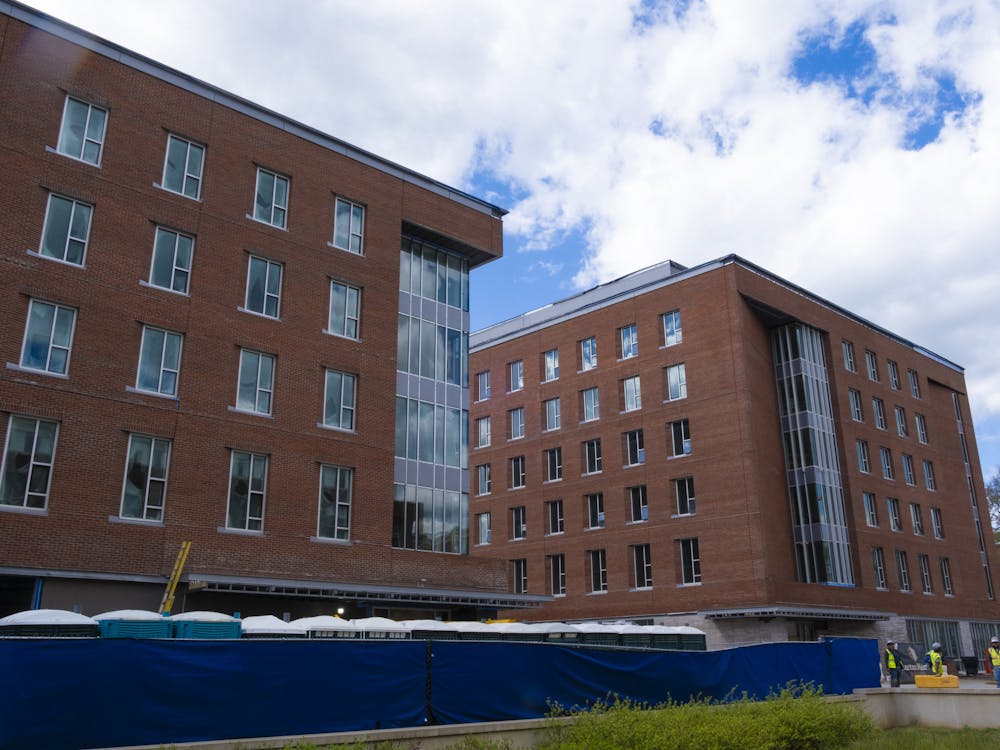While most University students enter straight from high school, Grounds are home to a number of veteran students who enroll to begin, complete or supplement their education after years of service in the military.
Currently, there is no undergraduate organization for veterans, but several students have been working alongside Assoc. Dean of Students Aaron Laushway to create a contracted independent organization on Grounds and improve veteran networks.
Kim Johnson, a fourth-year Batten student and Marine veteran, said she encountered a disconnect between veteran resources in the administration and student affairs when she arrived at the University.
Since then, Johnson has been working to implement federal initiatives schools can opt into, such as The 8 Keys for Veterans’ Success, which calls for the creation of veteran organizations and spaces at universities.The University has signed on to the agreement, but it has not fully implemented its components.
“Today, over 2,000 schools have signed [The 8 Keys to Veterans’ Success],” Johnson said. “I’ve been exposed to other schools with really robust programs, and when I got here there was a gap between what I was seeing here and what I've seen at other schools, so I started troubleshooting … [and] I uncovered [that] one of the aspects of the 8 Keys is having a student organization on campus for veterans, so that's one thing we're working on here.”
Laushway and Johnson, along with several undergraduate students, are seeking to bring a chapter of the Student Veterans of America to the University.
“We just submitted an application for a CIO last week,” said Chris Householder, a fourth-year College student and Army veteran. “We’ve been working with the Office of the Dean of Students, and they’ve all been great helping us, and as long as they keep helping us the way they have, I’ll be happy.”
Johnson is still looking ahead to other steps she and the school can take to reorganize veterans affairs at the University, namely creating a centralized and comprehensive office within the University for veteran students to use to connect with one another and communicate problems.
“One of the roadblocks we were running into was that we needed 10 veterans to start the [CIO] organization, and even though there are plenty of veterans at U.Va., we can't find each other,” Johnson said. “When a school signs [The 8 Keys], they're supposed to designate a space for veterans on campus, and U.Va. has never done that, and that’s pretty key for us to collaborate.”
Laushway said there are about 50 veterans among the undergraduate colleges, and he is working closely with several, including Johnson and Householder, to implement changes to attract more veterans to the University and address existing gaps in the integration of veterans into the University community.
“[Veteran students] are a very special group of people — they’ve come to Grounds with professional experience in the military, remarkable skills that range from pilots to mechanics to medical assistance,” Laushway said. “There is not a council for veterans right now, but that’s one of our goals — we want to expand upon support for our undergraduate veteran students.”
Lerner Edison, a Nursing graduate student and Navy veteran, said he was drawn here because of the University’s academic strength and public status, but agreed there are additional incentives the school could adopt.
“It’s a state school and I was in-state, they have benefits for veterans and the ranking of the program was high so [I knew] I would get a holistic education,” Edison said. “The University should help veterans by offering discounts for trips and activities and having a social scene where people can hang out and network.”
On the graduate level, schools such as the Darden School of Business and the Law School have active veterans groups, with the Veterans’ Student Association representing interests of Darden students and the Virginia Law Veterans advocating for veterans in the Law School.
Will Nagy, a second-year Law student and Virginia Law Veterans president, says veterans comprise about five to 10 percent of the Law School’s 900 students, and the organization helps advocate for these students.
“Virginia Law Veterans does advocacy for veterans at the Law School, like convincing admissions to structure their scholarships and admissions incentives that benefit veterans,” Nagy said. “So for instance, offering someone a full ride scholarship to come to U.Va. when they have all their cost covered doesn't really do anything, but we try to talk to admissions as structuring aid as incentives such as housing or living stipends, which wouldn't cut in on the GI Bill benefits.”
Nagy, who served in the Army, said the Virginia Law Veterans also work alongside students to help translate their resumes with military experience into civilian language.
“Career services sits down with all the veterans about how to translate experience not only on your resume but in person to a civilian environment,” Nagy said. “From day one in the military … No one should ever promote themselves, it’s all team based, and it’s really hard for military people to sell themselves in an interview. Training soldiers to get out of the military mindset into selling themselves and personal value to a new experience is important.”
Steven Laymon, interim dean at the School of Continuing & Professional Studies, works closely with veterans who are often drawn to this “non-traditional” school in the University. SCPS provides undergraduate degrees and certifications to students who are returning to school after partially completing a degree or wanting to supplement an existing degree with new skills.
“We have some students who are veterans who are coming back to complete their undergraduate degree — in most cases they already have their associate's degree, [and] often they have their undergraduate degree,” Laymon said. “And they complete a bachelor in interdisciplinary studies, which is a blended program, available with face-to-face classes and online — the good thing about that for veterans is that it’s part time, so it allows them to continue to work.”
Laymon said that of the approximately 60 veteran students enrolled in SCPS programs, many are attracted to the certification programs focusing on cybersecurity, contracts and procurement, where there is high overlap between veteran experience and professional skills.
“We do have a couple of certificates that have particular interest for veterans, like cybersecurity, so it’s not a surprise that someone comes back out of the service and they find pursing a degree like this appealing to them,” Laymon said. “We also have one in contracts and procurements, and this relates to building contracts between civilian contractors and the federal government. Veterans are well positioned for this work and understand it well.”
Johnson said the University has significant potential to attract more veterans, particularly if it strives toward becoming a school known for its benefits and resources for veterans.
“The University and the value system here of honor and excellence would appeal to and fit great with military culture, and we could make significant impact if we can attract and graduate and start a new career in public service,” Johnson said. “If veterans know this is a veteran friendly campus and there are veterans on the inside who can be ambassadors, then we can attract great students.”





